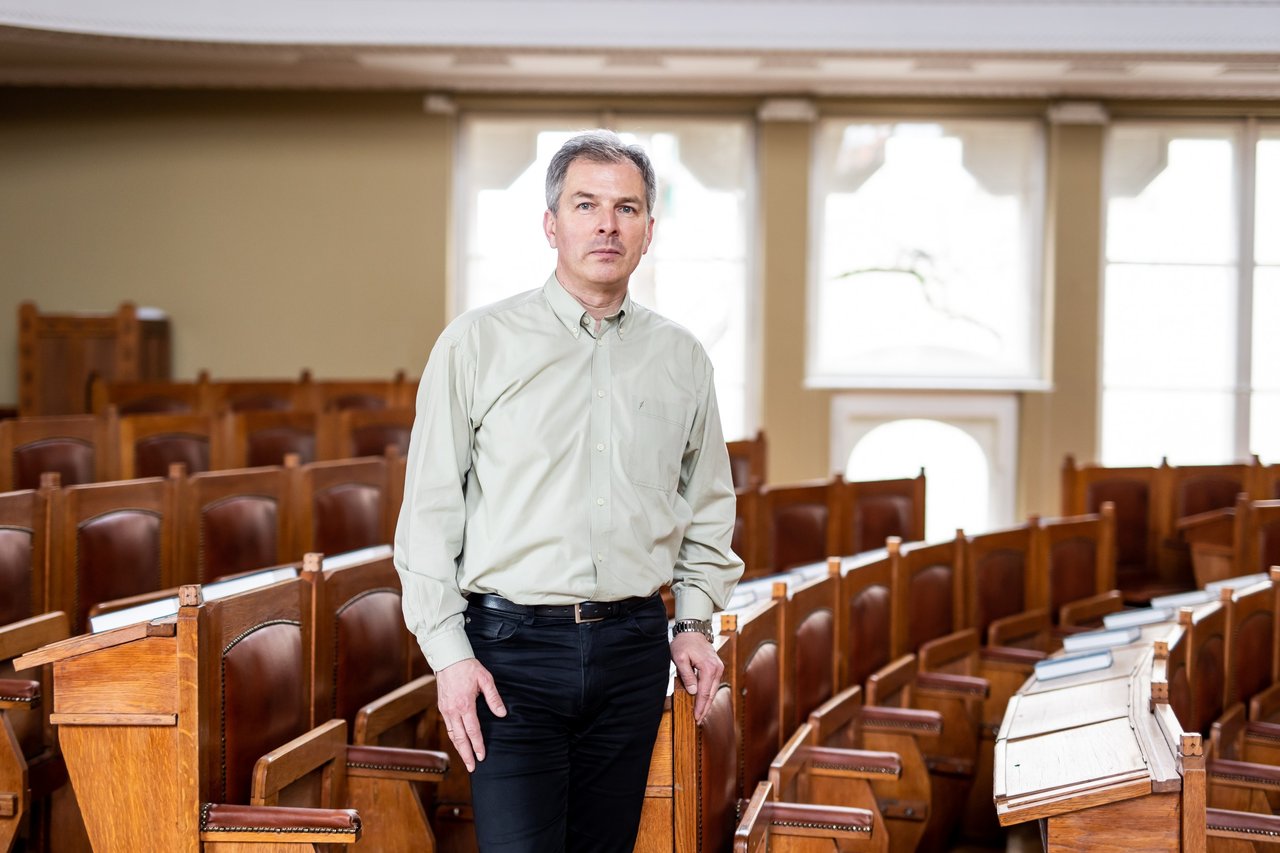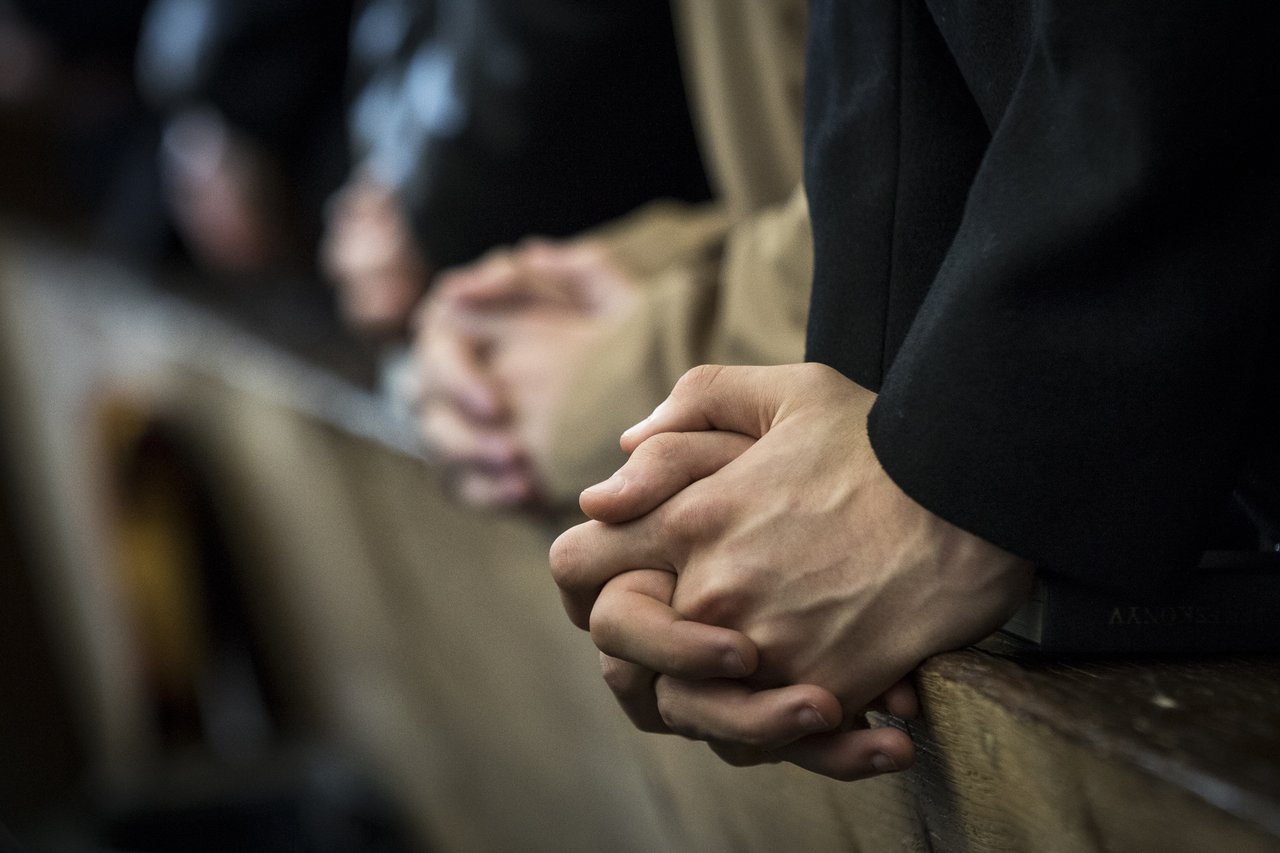“A congregation is not alive because it organizes programmes, but because what happens there points to Christ,” says Levente Zoltán Hajdú, head of the Mission Service of the Reformed Church in Hungary. The aim of the Reformed prayer chain, which begins in 2024, the Year of the Living Word, is to pray for renewal, because in living congregations the community of Christ can be present in such a way that it then has an impact on the whole organization.
“A living church in its living congregations,” this is the title of the national Reformed prayer chain for the spiritual renewal of congregations and the church, promoted by the Missionary Service in the Year of the Living Word. What does the concept of a living church mean?
A church is not alive because it organizes programmes, but because what happens there points to Christ. Therefore, the question is not what a church does but whether what it does points to Christ. So just because a church has a lot of Bible studies does not necessarily mean that it is a living church. They can also organize sports activities or cultural programmes in a community in a way that points to Christ. Whether a congregation is alive or not depends on a working, committed, active spirituality.

Photo: László Sebestyén
Churches pray for spiritual renewal. Were you planning to launch the prayer chain earlier, or have the events of the last few months prompted the mission ministry to do so?
As Reformed people, we are convinced of the need for constant reformation, constant renewal. In this sense, this is nothing new, but we must be able to constantly discern where and how the church needs to renew itself. In the situation in which our Church finds itself today, we must find the operational framework in which we can transmit our message in a direct and vital way. This is best found in living congregations. It is in living congregations that the community of Christ is able to be present - both vertically and horizontally - in a way that then impacts the whole organization. This is why László Ravasz says that "living churches can also bear a dead church." A church organization does not have to be alive in the same way as a congregation. The organization is there to help the living communities that Calvin writes about in the Institutes as the foundation of the church. The point of this chain of prayer is to recognize the person- and community-organizing power of prayer that can permeate and dynamize the workings of the church. This is why it is symbolic that the initiative is being launched after Pentecost, the feast of the filling of the Spirit.
What do you mean that we need constant renewal? Where do you draw the line? How far can we go in renewal?
The message of the Church is a dichotomy that is difficult to understand according to traditional logic. On the one hand, we represent eternal values, and these eternal values do not change. The basic biblical statements have not changed, the Bible declares in several places that it is a sin against God to add to it or take from it. At the same time, these eternal values must always be up-to-date in society, in the language of the people of the time. The reason why I do not say the Old Testament in Hebrew and the New Testament in Greek in church is because people would not understand, and therefore we do not use the Bible translation of a hundred or five hundred years ago, but the one that is relevant to life. We cannot lock up Christianity in a museum. I consider the 1907 translation by Charles to be a very good, beautiful text, but I do not use it in my sermons.
Pastors are asked to open their churches for prayer services if they can. Why is this necessary?
This is not theological but symbolic. The church, according to Protestant theology, is a place of assembly for the people of God, therefore, it does not in itself carry holiness. The church becomes holy by the sacred acts that take place there, and in this sense, the parish courtyard can be holy if, for example, we hold services there. The church is a symbolic place - by its very appearance, it seeks to proclaim the presence of God - when we enter its doors, we express our communion with the message of our Church, and we signify our consent. It is often the case in Reformed communities that when there is an evangelistic occasion in the church or in the meeting house, several people pray simultaneously for the occasion and for the participants. In the case of a prayer chain, parallelism is manifested in the sense that we pray for the same purpose at the same time. It is a background action in support of the Church's basic mission, praying for evangelisation, for the spread of the gospel entrusted to us. It is in this light that we have chosen the endpoint, the second of September. This is the beginning of the new church season, when all living communities will engage with renewed vigour in evangelisation in a variety of ways, from faith formation to midweek meetings to Sunday worship.
Then this prayer chain will first be directed inwards, and hopefully its effects will also be felt in society.
That's right. Prayer is empowering on an individual and community level. In this case, however, the community does not seek to be strengthened in the traditional form of worship, but through prayer, whether individual or communal, at home or in church, but at the same time, for the same purpose. The introductory Word of the event is linked to this:
"Arise, shine, for your light has come, and the glory of the Lord rises upon you. See, darkness covers the earth and thick darkness is over the peoples, but the Lord rises upon you and his glory appears over you. Nations will come to your light, and kings to the brightness of your dawn. Lift up your eyes and look about you: All assemble and come to you; your sons come from afar, and your daughters are carried on the hip. Then you will look and be radiant, your heart will throb and swell with joy"(Isa 60:1-5/a.)
We must take seriously that the radiance that is the reality of God is a miracle entrusted to us. Instead, we very often focus on the darkness of the world around us. True, Spirit-filled, God-centered brilliance always comes from inner strength and inner empowerment. As the well-known saying goes, you can lead no one further than where you are. So my inner faith is the base for me to lead others to God.
Did you launch the initiative to create a tradition?
We think of the prayer chain as a one-off occasion, at least in this form and with this purpose. However, we see that there is a significant need for this and similar forms of devotion, which are not so widespread in our Church.
What do you mean?
For example, different forms of prayer. The very concept of prayer is interesting because it is not communication in the classical or human sense of the word because I don't need to inform God about anything; I don't need to explain to him what I want because he knows my intentions. Prayer is the state in which the human soul is attuned to the soul of God, to his spiritual reality. This is the meaning of what the Apostle Paul said, to pray without ceasing. This can be done verbally, but it can also be done by marveling at the beauty of nature. Of course, this will only be prayer in a biblical sense if I am able to place it in my relationship with God.
The description of the event stresses that fasting can also support the prayer chain. What is the significance of fasting?
We are saturated with so many things, so many things filling our minds, our hearts, our stomachs, our lives, our time. The real question is where God's place is. Can I leave room, make room, and set God free? Fasting always points to this, not a renunciation in the negative sense of the word, but a very positive making of space. It's like when I prepare a room for a guest who is waiting for me with love, a room that is not cluttered with rubbish, not untidy. This room is an uncluttered space for the guest to come in and fill. This is how I wait for God. Fasting is about freeing up different areas of my life to receive God.

Details of the Prayer Chain
Living Church in Living Congregations
National Reformed prayer chain for the spiritual renewal of our congregations and church
In 2024, the Year of the Living Word, the Missionary Service of the Reformed Church in Hungary, is launching a nationwide Reformed prayer chain for the spiritual renewal of our congregations and church. For a spiritual awakening that seeks to serve the glory of God by receiving and living God's radiant love for us as fully as possible and radiating it to others.
We trust in God's Word, and to God's Word, we entrust ourselves, each other, our congregations, our church:
"Arise, shine, for your light has come, and the glory of the Lord rises upon you. See, darkness covers the earth and thick darkness is over the peoples, but the Lord rises upon you and his glory appears over you. Nations will come to your light, and kings to the brightness of your dawn. Lift up your eyes and look about you: All assemble and come to you; your sons come from afar, and your daughters are carried on the hip. Then you will look and be radiant, your heart will throb and swell with joy"(Isa 60:1-5/a.)
The National Reformed Renewal Prayer Chain:
- starts on the Tuesday following the feast of the filling of the Holy Spirit, 21 May
- and continues for 15 weeks
- Tuesday evening prayer services starting at 20.00
- until 2 September, the month in which the new church season begins in our communities.
Tuesday evening's national prayer chain:
- can also be joined individually, in our homes, as a family,
- but we are asking the joining churches to open their churches and meeting rooms for this hour,
- if members of our congregations would like to come together in prayer in these places.
According to the guidance of Scripture:
- prayer is linked to fasting in many cases
- we, therefore, encourage with fraternal love those who, in addition to prayer, are ready to commit themselves to individual and communal spiritual renewal through fasting.
The prayer chain:
- József Steinbach, Ministerial President of the Synod of the Reformed Church in Hungary, will open the event with a message on Friday 17 May,
- and then every Friday, we will publish a verbal message that can be distributed as a handout in the congregations, in preparation for the following Tuesday's prayer meeting.
- We also plan to publish these news items in the national and diocesan church press, as well as on the mission ministry and Year of the Living Word websites.
The congregations and municipalities involved in the prayer chain:
- on the map of Hungary on the Mission Service website,
- so we ask that those who wish to join the prayer chain on a one-off or ongoing basis, please indicate this by emailing eloige2024@reformatus.hu with the name of your congregation and/or town.
We entrust ourselves and each other, our congregations and our Church, in faith and prayer, to the renewing love of the Lord.